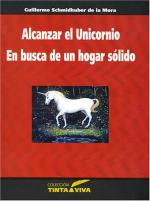|
This section contains 3,021 words (approx. 11 pages at 300 words per page) |

|
SOURCE: “Juan José Arreola: Allegorist in an Age of Uncertainty,” in Chasqui, Vol. XIII, Nos. 2–3, February-May, 1984, pp. 33–43.
In the following excerpt, Heusinkveld examines Arreola's “El guardagujas,” “Autrui,” and “El mapa de objetos perdidos” as modern, existential allegories.
In this century we have seen radical changes in the genres of literature. The Theater of the Absurd breaks theatrical conventions, and the New Novel differs radically from the traditional novel. This article considers a contemporary Mexican writer whose brief prose fiction, like much literature of this century, defies easy classification. The artistic purpose of Juan José Arreola is clearly not that of a traditional short story writer, who keeps the reader's attention with plot development, suspense, climax and denouement. In many of the brief fictional pieces in his Confabulario, Arreola presents only a static situation, usually of a bizarre or fantastical nature, that leaves the reader groping for meaning. In...
|
This section contains 3,021 words (approx. 11 pages at 300 words per page) |

|


